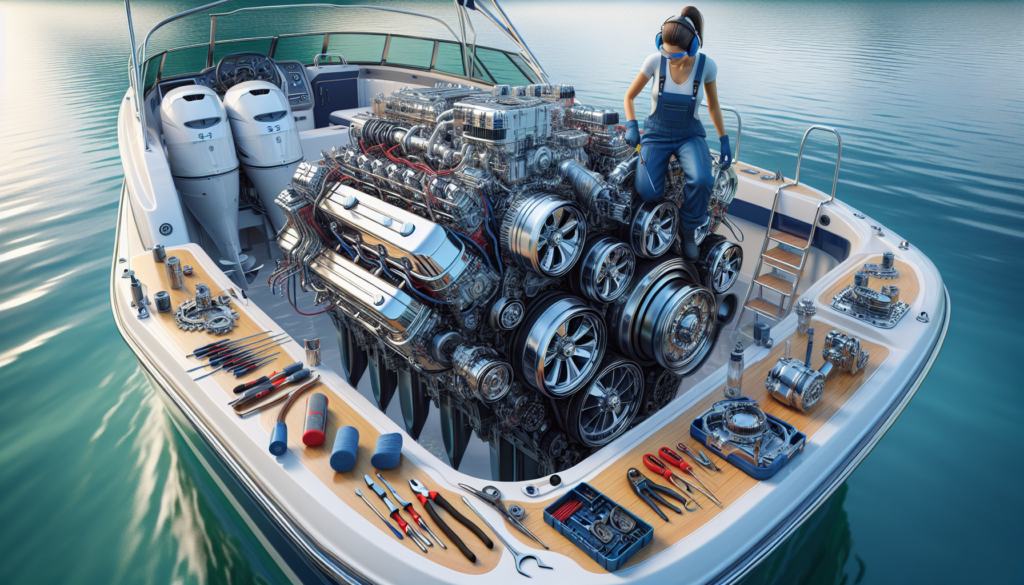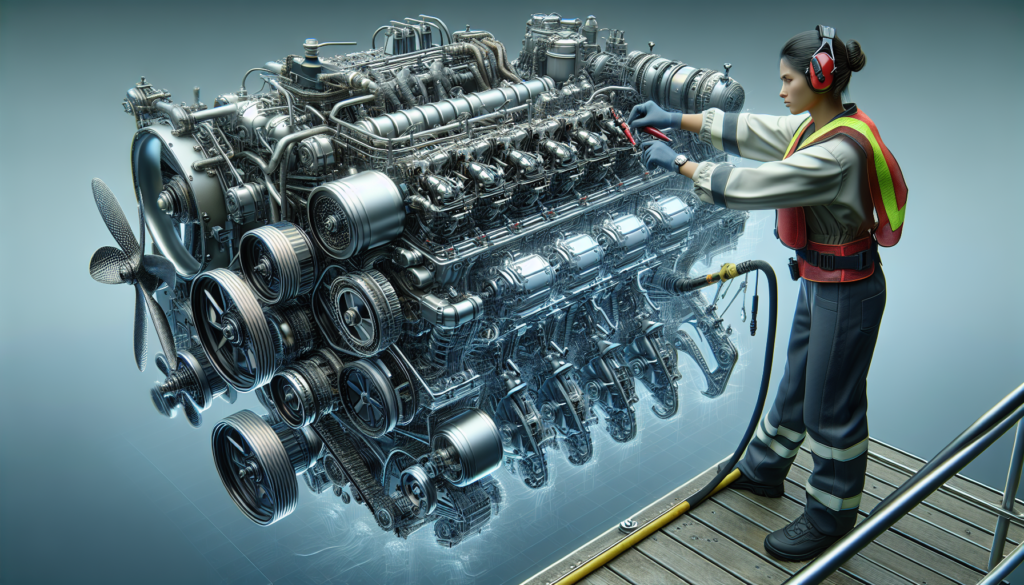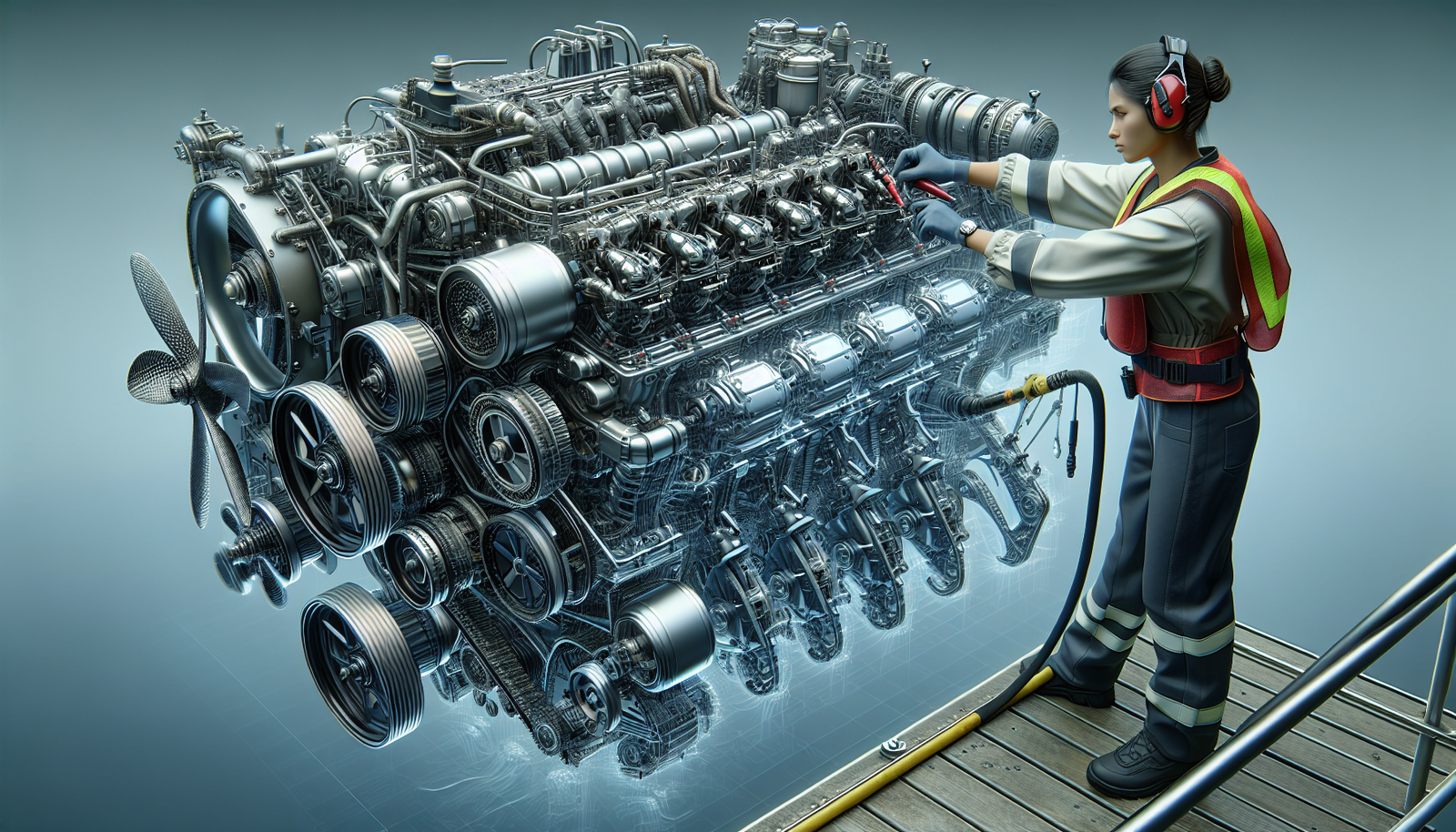If you’re a boating enthusiast who enjoys leisurely cruises on peaceful waters, this article is tailored for you. “Essential Safety Checks For Your Recreational Boating Boat Engine” sheds light on crucial inspection steps to ensure your boat’s engine is in top shape before you head out for unforgettable experiences. This isn’t just about preventing inconvenient breakdowns in the middle of a fun trip, but also about prioritizing your safety and that of your loved ones aboard. So, let’s gear up and ensure you’re fully equipped to maintain your boat’s engine and enjoy countless safe and smooth sailing voyages.
Understanding the Importance of Regular Engine Checks
Regular engine checks are crucial for maintaining your boat’s performance and ensuring its longevity. By diligent inspection of your boat’s engine, you’re not only preserving its value but also safeguarding your boating experience.
Importance of Maintaining Your Boat’s Engine
Maintaining your boat’s engine isn’t merely about performances; it’s about avoiding unnecessary breakdowns and costly repairs. A well-maintained engine holds its value better and lasts longer. Additionally, properly running engines contribute less to pollution, making your boating more environmentally friendly.
How Regular Engine Checks Ensure Safety
Regular engine checks ensure safety by identifying issues before they can cause a breakdown. Imagine being stranded in the middle of a water body due to engine failure. That’s a situation you’d want to avoid at all costs. Regular inspections help pick up on potential problems early on, so you can address them promptly.
Possible Risks of Neglecting Engine Checks
Neglecting engine checks is a risky move that can lead to severe and often expensive engine damage. When unchecked, minor issues can gradually become more complicated, leading to complete engine failure. Besides, neglecting engine checks could also compromise your safety on the water.
Pre-Journey Boat Engine Checks
Before embarking on a trip, it’s crucial to run some checks on your boat’s engine to ensure everything is functioning correctly.
Looking for Visible Signs of Damage
Inspect your engine for visible signs of damage such as cracks, rust, or corrosion. Pay attention to the state of your engine’s paint – peeling or bubbling paint could indicate issues like overheating.
Checking for Leaks
Leaks in your boat’s engine can be extremely dangerous, potentially leading to engine seizure and failure. Therefore, regularly check around and under the engine for any signs of leakage.
Ensuring the Engine is Properly Secured
Closely inspect the engine mount and ensure the engine is properly secured. A loose engine could cause unnecessary vibrations, leading to more damage and a less than pleasant trip.
Assessing Fluid Levels
Before starting the boat’s engine, ensure the oil and coolant levels are adequate. Running an engine low on oil or coolant can result in serious damage.

Fuel System Checks
It is equally important to inspect your fuel system thoroughly before hitting the water.
Checking For Signs of Damaged or Leaking Fuel Lines
Damage or leaks in your fuel lines can lead to fuel loss, reduced engine performance, and even fire. Inspect the lines for cracks, leaks, or signs of wear and tear, and replace any damaged parts immediately.
Examining Fuel Tanks for Corrosion or Damage
Over time, fuel tanks can corrode or sustain damage. Regularly inspect your fuel tank for signs of corrosion or other forms of damage.
Evaluating the Condition of the Fuel Filter
A clogged or damaged fuel filter can negatively impact the performance of your engine. Checking the condition of the fuel filter regularly can help prevent issues with your engine’s fuel supply.
Checking the Fuel Quality
Poor quality fuel can lead to various engine problems. Try to use high-quality fuel, and inspect the state of your fuel regularly.
Cooling System Checks
Your boat’s cooling system plays a vital role in preventing your boat’s engine from overheating.
Understanding the Importance of the Cooling System
The cooling system cools down the engine and prevents it from overheating, which can cause serious damage. Without an effective cooling system, your engine’s parts could potentially melt or warp.
Checking for Blockages or Leaks in the Cooling System
It’s important to check for blockages or leaks in your boat’s cooling system regularly. Over time, sediment and debris can accumulate and cause blockages, while wear and tear can lead to leaks.
Importance of Checking Coolant Levels
Low coolant levels can lead to your engine overheating. Regularly checking your coolant levels can help prevent serious engine damage.
Examining the Condition of the Water Pump
Your cooling system’s water pump is integral in regulating the engine’s temperature. A faulty pump could lead to overheating, so ensure your water pump is in good working condition.

Battery and Electrical System Checks
Inspecting the electrical system secures your safety and ensures all your boat’s electric features work correctly.
Inspecting the Condition of the Battery
Just like a car, a boat relies on its battery to start and run efficiently. Checking for corrosion around the battery terminals or a swollen battery case can help avoid unpleasant surprises.
Examining the Battery Connections
Loose or corroded battery connections can prevent your boat from starting. Ensure battery connections are tight, clean, and free from corrosion.
Checking for Any Electrical System Anomalies
Carry out a comprehensive check of the boat’s electrical system. Look out for flickering lights, malfunctioning switches, or other anomalies.
Testing the Functionality of Lights and Switches
In the interest of safety, check that all lights and switches are functioning correctly. From navigation lights to cabin lights, ensuring all are working properly is paramount.
Exhaust System Checks
Keeping an eye on your exhaust system is vital for maintaining a healthy boat engine.
Understanding the Role of the Exhaust System
The exhaust system removes harmful gases from the engine, maintaining your boat’s performance and reducing engine wear.
Checking for Leaks or Water in the Exhaust System
Leaks or water in the exhaust system could indicate a serious issue. Regularly check your exhaust for signs of leaking or water ingress.
Inspecting the Condition of Exhaust Pipes and Muffler
Regularly inspect the condition of your exhaust pipes and muffler. Damage or excessive rust could result in reduced performance or even a carbon monoxide leak.
Engine Belts and Hoses Checks
Another key step in maintaining your boat’s engine health is inspecting its belts and hoses.
Checking for Signs of Wear or Damage on Belts
Belts can wear out or crack over time. Regularly check for signs of wear or damage on belts to keep them running effectively.
Examining the Condition of Hoses
Hoses carry important fluids through the engine. Regularly inspecting hoses for cracks, leaks, or bulging can prevent engine damage and leaks.
Understanding the Role of the Engine Belts and Hoses
Engine belts and hoses play a vital role in the running of your engine. Belts aid in running the alternator, water pump, and other engine components, while hoses transfer important fluids throughout the engine.
Propeller and Shaft Checks
A thorough check of your boat’s propeller and shaft is essential for ensuring optimal performance and preventing damage.
Checking the Propeller for Signs of Damage
Damages like dents and chips on the propeller can affect your boat’s speed and fuel efficiency. Regular inspections can keep your propeller in top shape.
Ensuring the Propeller is Securely Attached
A loose or poorly mounted propeller can cause significant damage. Ensure the propeller is securely attached and tightened.
Inspecting the Condition of the Drive Shaft
A damaged or bent drive shaft can dramatically reduce your boat’s performance. Regularly inspect the drive shaft for any signs of wear or damage.
Understanding the Effects of a Faulty Propeller or Shaft
A faulty propeller or shaft doesn’t only impact your boat’s performance but also risks causing further damage to other parts of the boat.
Know When to Seek Professional Help
Always remember, not every engine problem can be solved with DIY skills, and sometimes professional help is required.
Recognizing Serious Engine Issues
While basic maintenance and checks can be done by you, recognizing when a problem is beyond your skill set can avoid exacerbating the issue and leading to more costly repairs down the line.
When to Seek Professional Maintenance
If you identify any major issues during your check or if your engine doesn’t start or runs poorly, it’s time to bring in the professionals.
Understanding the Limitations of DIY Engine Checks
While you can handle basic maintenance, remember it’s okay to seek professional help. Professional mechanics have the training and tools to thoroughly inspect and repair any issues they discover.
Effective Maintenance Tips for Long-Term Engine Health
Maintaining your engine’s longevity is ultimately hinged on how well it’s cared for.
Regular Cleaning and Maintenance Procedures
Regular cleaning and maintenance can do wonders for your engine’s lifespan. Scheduling routine cleaning to get rid of salt, grime, and other debris can help keep your engine running smoothly.
Using Quality Parts and Fuel for Your Engine
Always use high-quality parts and fuel for your boat. Using inferior parts or low-quality fuel can lead to premature wear, increased emissions, and reduced performance.
Periodic Professional Services
It’s important to schedule periodic professional services to maintain your boat engine’s performance and longevity.
Storing Your Boat Properly to Maintain Engine Health
Proper storage of your boat when it’s not in use is equally crucial. This can help prevent unnecessary damage and depreciation, plus it keeps your engine in great shape for the next boating season.

